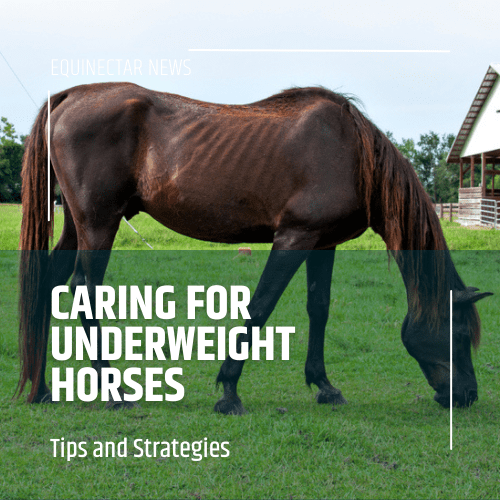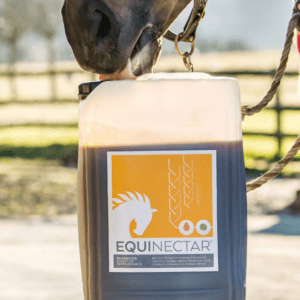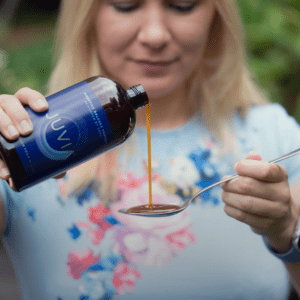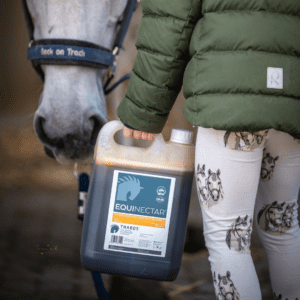Caring for Underweight Horses: Tips and Strategies
Caring for underweight horses can be difficult because the horse needs a combination of dietary and management strategies to gain weight and stay healthy. A horse may be underweight for many reasons, such as not getting enough calories, being stressed or in pain, or having a disease. In this blog, we’ll talk about the different things that can cause a horse to lose weight and give tips on how to care for an underweight horse.
Possible Causes of Weight Loss in Horses
If a horse is losing weight when competing or preparing to compete, it may not be getting enough calories, be too stressed out, or be sick (in pain or discomfort). Horses with gastric ulcers tend not to want to eat due to pain, and treatment for ulcers should be initiated immediately upon diagnosis or efforts to increase weight gain will be fruitless. Muscle breakdown is constant in older horses, so they need more high-quality protein in their diets. Young, growing horses have high energy requirements, but care must be taken to balance nutrients and energy to avoid under or overgrowth in bone and tissue. Parasite infection can lead to weight loss, so horses should be maintained on a regular deworming schedule.
Access to high-quality hay and pasture can help a hard keeper maintain his weight. Nervous horses tend to do better when fed feeds low in starch and sugar, as blood sugar increases following grain meals and may exacerbate the problem. Lactating broodmares need the most energy of any type of horse, and they need to eat about 3% of their body weight every day to make milk and stay in good shape. Extra care should be taken to avoid starch overload in the lactating mare. Horses that lose weight for no obvious reason should be seen by a vet to see if they are sick.
Dietary and Management Recommendations
Increasing feeding frequency is one of the safest ways to improve feed consumption and calorie intake without heightening the risk of starch overload in the hindgut. High fat and soluble fibre feeds work best for putting weight on thin horses. Horses that need to gain weight should be fed products that contain excellent quality protein and guaranteed amino acid levels. Feeding thin horses the best quality forage is important because it tastes the best and has the most energy. Enzymes that enhance digestion are useful in adding weight to thin horses. We created EquiNectar to provide horses with naturally sourced enzymes. Adding condition is one of the proven benefits of using EquiNectar.
Reducing stress and turning horses out is the best therapy for horses that need to gain muscle tone and weight. Stress can have a significant impact on a horse’s appetite and can lead to weight loss. By providing a low-stress environment, such as turning the horse out to pasture or providing a calm, quiet, stable environment, you can help the horse relax and feel more comfortable. Taking care of the horse’s teeth is also important, since dental problems can make it hard for the horse to eat and digest food well. Check the effectiveness of the existing parasite control program and adjust if necessary. Parasites can lead to weight loss and other health problems if left unchecked.
In addition to dietary and management strategies, it is also important to work with a vet or equine nutritionist to develop a personalised care plan for the underweight horse. A vet can do a full physical exam and diagnostic tests to find out if there are any underlying health problems that could be causing the horse to lose weight. An equine nutritionist can help you design a diet that meets the horse’s nutritional needs and helps them regain weight in a safe and healthy way.
Nutritionist’s view
Equine nutritionist Lorraine Hughes offers her experience of working with underweight horses:
When dealing with underweight horses, it is imperative to establish the reasons behind the weight loss by contacting a veterinarian who can run tests to establish the causes. While public non-horse and even horse people are likely to jump straight to neglect upon seeing an underweight horse, it is crucial to understand that not all underweight horses result from neglect and malnutrition. Underweight horses may have an underlying condition causing weight loss, such as dental disease, dysphagia, lymphosarcoma, granulomatous enteritis or old age. Therefore, owners must identify the cause before working with a nutritionist to increase the body condition score (BCS).
No matter the cause of weight loss, any changes to diet must be done gradually, even if this increases the quality or quantity of the feedstuff. Increases in conserved forages should always be the first step in improving the BCS of horses. After which, if the desired weight increase is not achieved, then the introduction of concentrated feeds can be gradually introduced. Maintaining low non-structural carbohydrate (NSC) levels helps prevent the formation of gastric ulcers or the disturbance of the hindgut microbiome, which plays a vital role in keeping the horse healthy and extracting nutrients from feedstuffs.
Small regular feedings are best for increasing BCS every few hours rather than large feeds once or twice a day. A good quality feed balancer, ad-lib conserved forage and beet pulp, and a supplement like EquiNectar which helps a horse break its food down, ensuring better nutrition and protection of the hindgut microbiome, are always advisable over high carbohydrate feeds that are more complex for the horse to digest and can result in other health conditions.
Conclusion
In conclusion, if you want to take care of a horse that is too skinny, it is important to understand what they need to eat and how to treat them. The reasons a horse loses weight can be very different, from not getting enough calories to health problems like gastric ulcers or parasite infections. So, it’s important to work closely with a vet in the first instance to find and treat any health problems that may be causing the weight loss.
Dietary and management recommendations can help horses regain weight safely and effectively. Increasing feeding frequency, providing high-quality protein and fibre feeds, and ensuring access to excellent quality forage are just a few examples of effective dietary interventions. Also, reducing stress, letting horses out, and making sure they have good dental care and don’t have parasites are important management techniques.
Ultimately, the best way to care for underweight horses is to be careful and have patience.
With the proper care and attention, underweight horses can regain their health, strength, and vitality, and go on to thrive in their roles as athletes, companions, and beloved members of the equine community.
Contributor
Lorraine Hughes
MSc, BSc, PhD candidate

Lorraine completed her undergraduate degree in equine sports science. She received an MSc in equine performance health and welfare from Nottingham Trent University, where she focused on equine gastric ulcer syndrome (EGUS).
Lorraine is the owner/director of Equineus Ltd, an equine nutrition and welfare consultancy. She is a nutritionist with an equine physiology background so is able to apply holistic strategies to horse welfare.
She is currently in her first year of a PhD on EGUS.






Hi what would recommend for 25 yr old who does light work and lost a lot of weight?tks
Hi, if you’ve ruled out any underlying health conditions, it would be worth looking at your feed regime. Is your horse getting enough food? Is your horse able to digest the food you are giving? If your horse is eating enough and there aren’t any health conditions, your horse could potentially benefit from adding some EquiNectar. EquiNectar provides enzymes which help contribute to the optimum digestion of what you are feeding. We’ve seen significant improvements to condition in a short period of time.
Hi. I have a 25 year old cob gelding. He’s not skinny it’s just he’s lost some muscle on his top line/flanks, he’s in light in hand work (not ridden) and is exercised for 20 minutes every other day, he’s on 2 feeds a day of 1 full Stubbs scoop of Top Spec Light, 600g Top Spec senior balancer, half a Stubbs scoop Top Spec fibre plus cubes, I’ve just started adding some Gold Label vitamin E 1000 in his morning and evening feed. Is there anything else you would recommend? His teeth are fine, he’s a healthy happy old fella. TIA…
Hi Gaynor, we have had much success helping horses gain condition with EquiNectar.